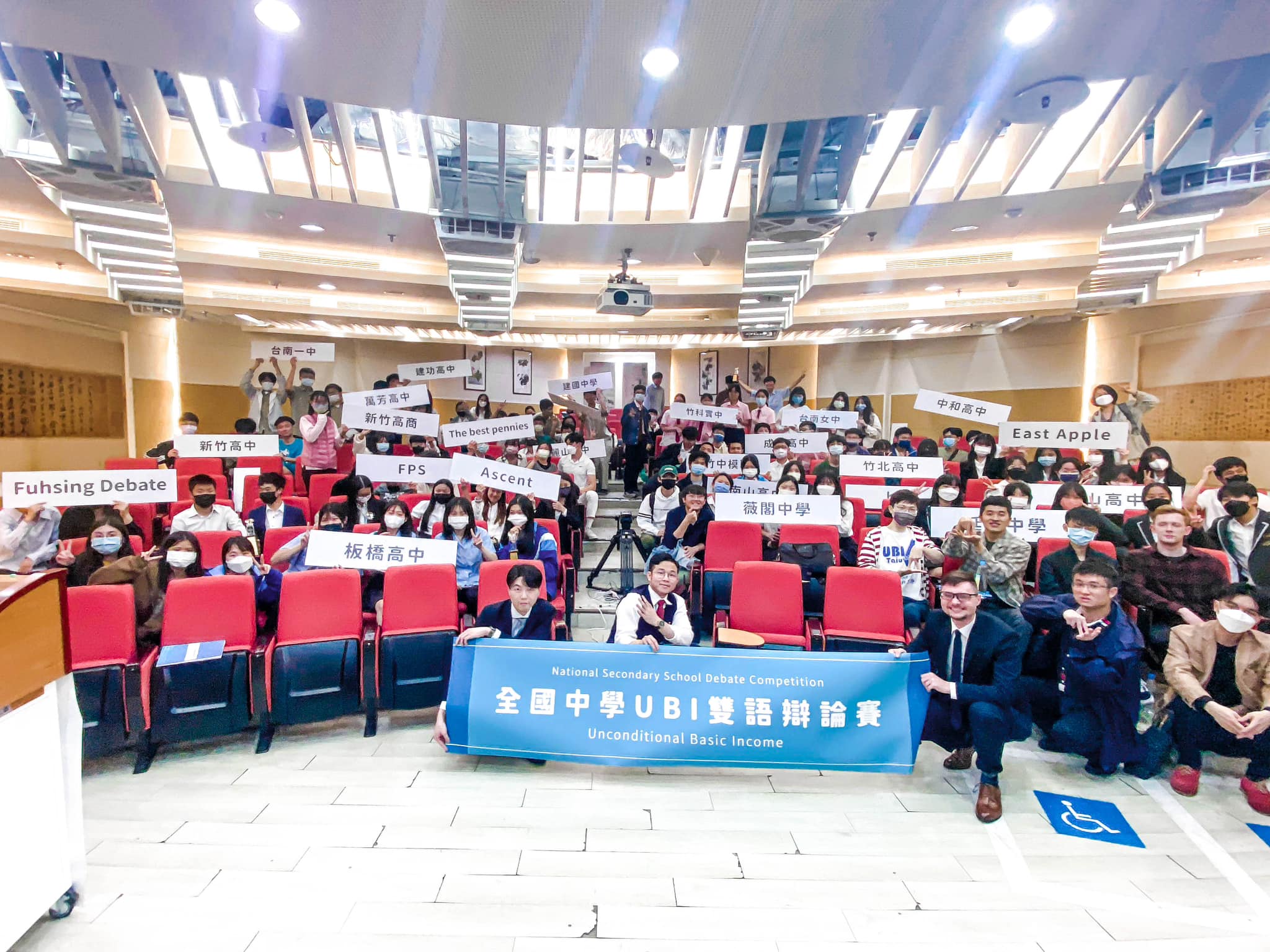TAIPEI, Taiwan – On March 11 and 12, UBI Taiwan hosted a national bilingual high school debate tournament at National Chengchi University (NCCU). Over 100 students from local and international schools across Taiwan participated in the event, which featured both English and Chinese debate sections.
The debate focused on whether Taiwan should enact an Unconditional Basic Income (UBI) system. Students presented cases discussing the feasibility, necessity, and efficiency of UBI. Inflation was a common concern on the con side, while expanding opportunities for Taiwanese citizens, such as starting businesses, was a popular argument on the pro side.
The Chinese final round saw the pro side win, arguing that the con side could not specifically identify why Taiwan did not have enough money to support both UBI and other essential programs. In the English final round, the con side emerged victorious, based on the idea that inflation and feasibility could present problems for implementing UBI in Taiwan.
Many students expressed their gratitude for the platform to speak on issues that mattered to them. For some, it was their first time studying UBI, and they found the experience to be a valuable learning opportunity to explore the future of Taiwan’s social services.
UBI Taiwan founder Tyler Prochazka addressed the audience at the end of the event, discussing the fear of automation with the rise of ChatGPT. He also highlighted the pressing issues in Taiwan that merit discussing UBI, such as helping parents raise their children, especially single parents. Prochazka argued that a program providing an unconditional basic income to parents with children could feasibly be implemented now, citing numerous studies showing the benefits outweigh the costs.
“I believe that by coming together to have these discussions, we can better understand the potential of a UBI and how it can benefit Taiwan’s society and our economy,” Prochazka said.
Allen Chen, co-founder of Lead for Taiwan, emphasized the importance of debate in addressing issues affecting Taiwan’s future. He encouraged students to take their academic experience and make a change in the real world.
The event was a milestone in promoting bilingual debate competitions in Taiwan, with participants from schools such as Kaohsiung and Taipei American School, Hsin Chuang High School, Wego High School, and Chien Kuo High School. This was the first competition of its kind in Taiwan, bringing English and Chinese divisions together in a tournament that was free for students to participate in.
The judges of the competition had diverse international backgrounds, including renowned lawyers, United Nations consultants, and top global business consultants, providing valuable real-world feedback to the participants.
NCCU’s International College of Innovation provided support and the venue, while Ascent Academy sponsored the event financially to expand debate opportunities across Taiwan. Taiwan’s Chinese Debate Promotion Association (CDPA), which is well-known in Taiwan for its national debate tournaments, administered the competition.
UBI Taiwan’s chairman Jiakuan Su said he hopes to continue hosting national bilingual debate competitions in the future, providing students throughout Taiwan with the opportunity to engage in debate activities and gain a deeper understanding of social issues.
“What I saw in this competition was not just about discussing common issues of basic income, but more about the students’ imagination of the future of our social welfare system,” Su said. “As an audience member, I was deeply moved by their speeches and I hope this experience can be an important component of their development into engaged citizens.”


